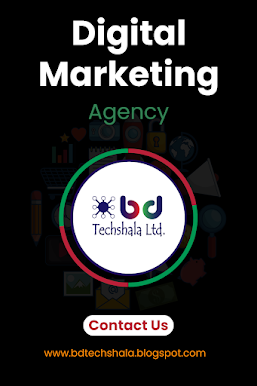In today’s digital landscape, effective marketing strategies rely heavily on data and insights. As businesses strive to optimize their marketing efforts, the right tools can make all the difference. From managing campaigns to analyzing performance, a variety of digital marketing tools can streamline processes and enhance results. In this blog post, we will explore some of the best tools for managing and analyzing your digital marketing efforts.
1. Google Analytics
Overview
Google Analytics is an essential tool for any digital marketer. It provides comprehensive data about website traffic, user behavior, and conversion rates. By tracking key performance indicators (KPIs), businesses can gain valuable insights into how users interact with their websites.
Key Features
- Traffic Analysis: Understand where your visitors are coming from and how they navigate your site.
- User Behavior Tracking: Analyze how users engage with your content, including page views, time spent on pages, and bounce rates.
- Goal Tracking: Set and track specific goals, such as newsletter sign-ups or product purchases, to measure your campaign's success.
- Custom Reports: Create tailored reports to focus on metrics that matter most to your business.
Why Use It?
Google Analytics is free and incredibly powerful, making it a must-have for businesses of all sizes. It helps you make data-driven decisions, ultimately improving your marketing strategies.
2. SEMrush
Overview
SEMrush is an all-in-one tool that offers features for SEO, PPC, content marketing, and social media. It is particularly well-known for its competitive analysis capabilities, allowing marketers to assess their competitors' strategies.
Key Features
- Keyword Research: Discover keywords that can drive traffic to your site and analyze their search volume and difficulty.
- Site Audit: Identify technical issues on your website that may affect its performance and rankings.
- Backlink Analysis: Evaluate your backlink profile and identify potential link-building opportunities.
- Social Media Tracker: Monitor your brand's social media performance alongside your competitors’.
Why Use It?
With SEMrush, you can develop a comprehensive digital marketing strategy based on detailed competitive insights and keyword research, enhancing your overall performance.
3. HubSpot
Overview
HubSpot is a leading marketing automation platform that integrates various tools for inbound marketing, email marketing, social media management, and customer relationship management (CRM).
Key Features
- Email Marketing: Create, automate, and analyze email campaigns with user-friendly templates.
- Lead Generation: Capture leads through forms and landing pages, and track their journey through your sales funnel.
- CRM Integration: Manage customer relationships seamlessly with integrated CRM features.
- Content Management: Create and manage your blog, landing pages, and website content.
Why Use It?
HubSpot is particularly beneficial for businesses looking to automate their marketing processes and improve lead nurturing through personalized content and targeted campaigns.
4. Hootsuite
Overview
Hootsuite is a powerful social media management tool that helps marketers schedule posts, engage with audiences, and analyze performance across multiple platforms from one dashboard.
Key Features
- Social Scheduling: Plan and schedule posts for various social media channels in advance.
- Engagement Tracking: Monitor mentions, comments, and direct messages to engage with your audience promptly.
- Performance Analytics: Measure the effectiveness of your social media campaigns with detailed analytics.
- Content Curation: Discover and share relevant content from across the web to keep your audience engaged.
Why Use It?
Hootsuite simplifies social media management, allowing businesses to maintain a consistent online presence while effectively engaging with their audience.
5. Mailchimp
Overview
Mailchimp is a leading email marketing platform known for its user-friendly interface and robust features. It’s ideal for businesses looking to create and manage email campaigns efficiently.
Key Features
- Drag-and-Drop Builder: Easily design professional-looking emails with customizable templates.
- Segmentation: Target specific audience segments to increase engagement and conversion rates.
- Automation: Set up automated email sequences for welcome messages, abandoned carts, and follow-ups.
- Performance Analytics: Track open rates, click-through rates, and overall campaign performance.
Why Use It?
Mailchimp is perfect for small to medium-sized businesses aiming to enhance their email marketing efforts without needing extensive technical expertise.
6. Google Ads
Overview
Google Ads is a powerful pay-per-click (PPC) advertising platform that allows businesses to display ads on Google search results and across its network of partner sites.
Key Features
- Keyword Targeting: Bid on specific keywords to ensure your ads appear in relevant search results.
- Ad Extensions: Enhance your ads with additional information such as location, call buttons, and site links.
- A/B Testing: Test different ad variations to determine which performs best.
- Performance Tracking: Analyze key metrics like impressions, clicks, and conversions to optimize your campaigns.
Why Use It?
Google Ads provides businesses with immediate visibility in search results, making it an effective tool for driving targeted traffic to your website.
7. BuzzSumo
Overview
BuzzSumo is a content research tool that helps marketers identify trending topics, analyze competitors, and discover content that resonates with their audience.
Key Features
- Content Discovery: Find popular content in your niche based on social shares and engagement metrics.
- Influencer Identification: Identify key influencers in your industry to collaborate with for greater reach.
- Backlink Analysis: Analyze who is linking to your content and explore potential backlink opportunities.
- Content Alerts: Set up alerts for specific keywords or topics to stay updated on industry trends.
Why Use It?
BuzzSumo helps businesses generate content ideas and develop strategies based on what’s currently popular, increasing the likelihood of engagement and shares.
Conclusion
In the rapidly evolving world of digital marketing, having the right tools at your disposal can significantly enhance your efforts. From analyzing website performance with Google Analytics to managing social media with Hootsuite, these tools provide the insights and automation needed to optimize your marketing strategies.
Investing in these tools will not only help streamline your processes but also enable you to make informed, data-driven decisions that can lead to increased engagement, conversions, and overall business growth. As you explore these options, consider your specific needs and goals to choose the tools that best align with your marketing strategy.












0 Comments